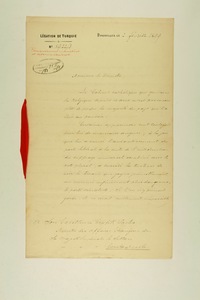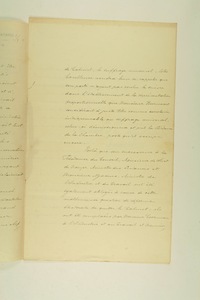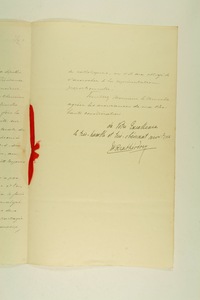Ottoman Diplomats
Letters from the Imperial Legation in Brussels (1849–1914)
Synopsis
Remaniement ministériel et réforme électorale.
The joy of the Belgian Catholics (related to the defeat of the liberals, caused by the combination of universal suffrage with plural votes) disappeared, as the socialists kept winning ground in Belgium. Etienne Carathéodory Effendi considered it to be possible that in the near future the subversive revolutionary parties would have a majority. If the government was a socialist one, it would soon get rid of the royals, Carathéodory predicts. The Catholics and liberals tried to find a remedy. Some considered the proportional representation to be the solution. Carathéodory reminds Tevfik Pacha that this had been suggested once by Beernaert, but that this led to the fall of his government. Prime Minister and Minister of Finance, Paul de Smet de Naeyer, and Minister of Industry and Work, Albert Nyssens, were also forced to resign for the same reason. Jules Vandenpeereboom, who was the Minister of Railways, Post Services and Telegraph Services, became Prime Minister, Julien Liebaert was the new Minister of Finance, and Gérard Cooreman became the new Minister of Industry and Work. The outcome of the discussions on proportional representation was still unclear.
Facsimiles
| Series | HR.SYS-222-39 |
|---|---|
| Place | Brussels |
| Date | 02-02-1899 |
| Author | Etienne Carathéodory Effendi |
| Recipient | Tevfik Pacha |
Names
How to cite
If you use this website for your own research, we kindly ask you to mention the following reference in your publications:
Consulted online at Ottoman Diplomats: Letters From the Imperial Legation in Brussels (1849–1914) (2014 Edition), Centre for Political History (PoHis), University of Antwerp, <http://dighum.uantwerpen.be/ottomandiplomats/>.






